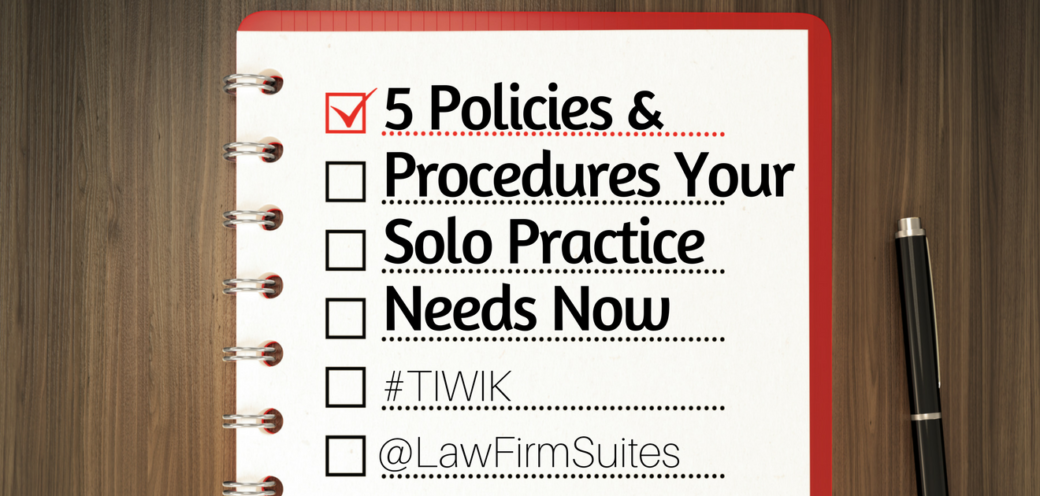In this week’s edition of Things I Wish I Knew, Solo lawyer Joleena Louis shares how she uses different policies and procedure to boost her practice.
I have so much on my plate that it’s imperative that my practice runs efficiently.
Even though I know exactly what I need to do, I’m human and sometimes I forget things or make mistakes. I also occasionally delegate tasks to my virtual assistant and I need them to be done as if I did them myself.
This is where office policies and procedures come in. I have step-by-step checklists and instructions for every task that must be done in my practice. It helps me complete every task correctly and makes it easier to delegate to my virtual assistant.
Here are some of the most important policies and procedures that help my practice run smoothly:
Case Screening Process
Do you have policies in place to determine if you will take a case? This can be a list of questions or qualifications you have before you will accept a consultation. You can also include a script or list of information that must be obtained before setting an appointment. That way no matter who vets the client, a receptionist or a virtual assistant, the process should be exactly the same.
Intake Procedures
You should have a very detailed intake procedure in place. It should include:
- Steps to set up a consultation
- What happens during a consultation
- How to proceed if you don’t take the case
- How to accept the fee and
- How to set up the client in your systems
Calendaring Procedure
You need to have a system in place to keep track of important dates and deadlines.
As a solo, I find it extremely helpful to have two calendars – one hard copy and one digital. If I forget my hard copy I can always look on my phone or if my phone crashes or I can’t get service in the courtroom, I always have my hard copy as a backup.
As part of my daily and weekly routine, I make sure the two calendars match. My digital calendar also syncs with my case management software, so my clients get notified when input a new date on their case.
Client Communication Policy
The biggest complaint from legal clients is a lack of communication from their lawyer. I find having a communication policy in place helps manage client expectations and makes my life easier. I give all new clients a copy of this policy so they know exactly what to expect.
This policy should include:
- How quickly you will respond to clients when they contact you
- If you respond on evening or weekends
- How to contact you in an emergency and
- What happens when you are on vacation
Close Out Procedures
Make sure you have a standard procedure for closing out your cases. You need to let your clients know when you have completed representation. Tell them how to get a copy of their file and how long you will retain any records.
When I complete the closeout procedure, I also schedule a time to contact them about follow up services. For example, a year after a divorce is finalized I’ll send a letter asking if orders are being followed or if they have any new issues.
Taking the time to set policies and procedures is worth the effort because they help you practice more efficiently and makes it much easier to delegate. Plus, having these in place even as a solo will allow you to see what works and makes adjustments before you hire help. They will also ensure that you don’t miss any important steps and that each client is getting the exact same excellent service.


